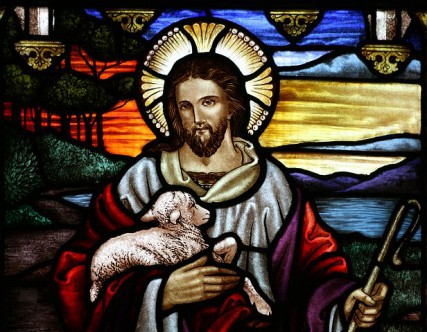
In John 21:1-19, Jesus asks Simon Peter, “Simon, son of John, do you love me?” Why would he ask Peter this question? And, why three times? This question refers back to a previous passage we read on Palm Sunday, and reveals the overwhelming compassion and mercy of Jesus toward Peter, and toward all of us. In the reading from Palm Sunday, Jesus told Peter that Peter will be “sifted like wheat,” to which Peter responds, somewhat arrogantly, “Lord, I am prepared to go to prison and to die with you!” Jesus comments that Peter would deny knowing him three times before the cock crows that very day. As it happened, only a few hours later he was arrested, and in the unfolding events Peter denied that he knew Jesus three times. The text tells us that as Peter voiced his third denial, “the cock crowed, and the Lord turned and looked at Peter; and Peter remembered the word of the Lord, how he had said to him, “Before the cock crows today, you will deny me three times.” Peter then went out and began to weep bitterly.
What a tragic and emotionally wrenching situation! As Jesus was being led away — chained, mocked, humiliated, physically abused and being led to certain death — most of his close friends fled, and the one who remained denied knowing him! As any of us would be, he must have been overwhelmed with helplessness and the hopelessness of the situation, as well the abandonment and denial of his closest friends. And, poor Peter! As he voices his denial, in utter fear and trembling, he catches a glimpse of Jesus looking at him. How utterly painful! The grief and guilt that he felt must have been completely overwhelming for him.
No doubt, at the next encounter, most of us would be very upset with Peter; perhaps we would reprimand him, chastise him for his cowardice; perhaps we would demand that he apologize; or worse, perhaps we would stand back, refusing to take the first step and interact with Peter until Peter apologized and demonstrated “appropriate remorse.” Or, perhaps we wouldn't want anything to do with Peter, reasoning that Peter showed his “true colors,” and was not the friend we thought he was. And, most of us (in the place of Peter) would have been far too ashamed, far too humiliated to even approach Jesus. We probably would want to apologize, and experience the forgiveness and acceptance of him, but our shame would make it too difficult for us to take the first step. We would avoid Jesus, and back away from interactions with him.
This story gives us a practical example of how he “bears the burden” for Peter, and for us. Jesus, in humility, honesty, compassion and mercy reaches out, across the divide created by the human turmoil, confusion and pain, and addresses Peter directly. Peter can't avoid him; he can't hide. And, he goes right to the heart of the matter. In his direct question, he offers Peter the opportunity to retract his prior denials, and re-affirm his love for him. It is a question which is simultaneously compassionate, merciful, forgiving and healing. Jesus looks beyond the mistakes, the imperfections, the fears, the selfishness, the pride that Peter and each of us continue to exhibit. He crosses the divide, bears the burden, loves us as we are, forgives us our shortcomings and failings, and continues to invite us into intimate friendship.
And, then, he asks Peter, and us, to “feed my sheep.” Pass it on. What you have received from me — the compassion, the mercy, the forgiveness, the healing – pass on to others around you who are in need of the same thing.
Herein is the heart of the matter. Can we respond to Jesus' invitation for continued and deepening friendship? Can we let him “call us out” in compassion and mercy? Can we respond to his request to “pass it on” – to love as he loves us?






